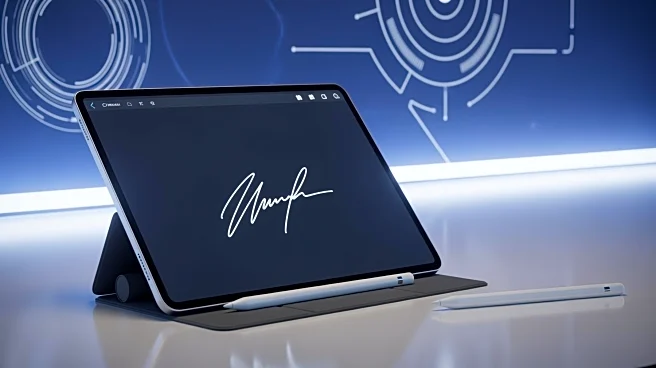What's Happening?
DayOnes Live, a Tampa-based technology company, is introducing a new digital autograph system designed to enhance fan engagement at live events. The technology will debut during Artikal Sound System's
concert at Jannus Live, allowing attendees to receive verified digital autographs instantly. This innovation aims to redefine how artists and venues connect with fans, creating a direct channel for engagement without third-party interference. The system is protected by U.S. Patent No. 10,749,935 and promises to become a standard feature at major events. DayOnes Live is inviting artists, festivals, and venues to join its pilot program, offering access to its platform and co-marketing opportunities.
Why It's Important?
The introduction of DayOnes Live's digital autograph technology represents a significant shift in the live entertainment industry. By enabling direct and verified connections between artists and fans, the platform enhances engagement and loyalty, potentially increasing revenue opportunities for artists and venues. This technology could disrupt traditional fan engagement methods, such as social media and SMS blasts, by providing a more authentic and personalized experience. As the platform expands, it may influence how live events are marketed and monetized, offering new avenues for artists to build and maintain their fanbase.
What's Next?
Following the debut at Jannus Live, DayOnes Live plans to expand its pilot program across the U.S., with activations in music and sports events. The company is in discussions with major venues and promoters to implement large-scale digital autograph experiences through 2026. Artists and venues participating in the pilot program will gain early access to the technology and support for live events. DayOnes Live is also seeking a Title Sponsor to partner in its nationwide rollout, offering brands a unique opportunity to connect with fans through digital autograph drops.
Beyond the Headlines
The launch of DayOnes Live's technology may have broader implications for the entertainment industry, influencing how fan data is collected and utilized. By providing a direct channel for engagement, the platform challenges existing models that rely on third-party data and algorithms. This shift could lead to changes in how artists and venues approach marketing and audience interaction, emphasizing authenticity and direct connections. Additionally, the technology may impact cultural perceptions of fan engagement, setting new standards for how artists interact with their audience.










